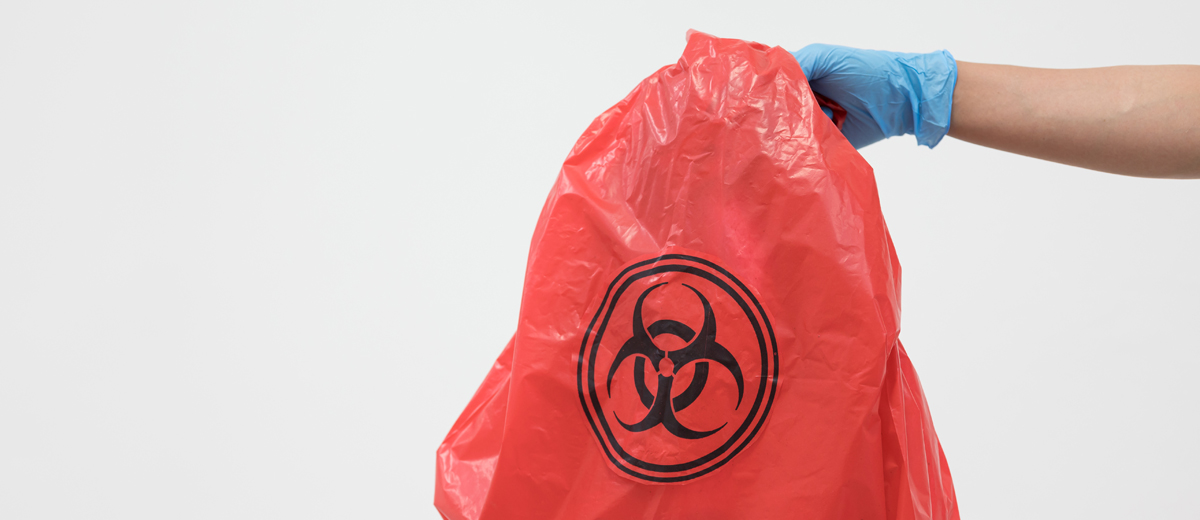School health offices provide evidence-based care while compassionately supporting the health and well-being of their school community and protecting and saving countless lives, but, like other healthcare facilities, they can generate serious amounts of medical waste in the process. Due to the combined toxic and infectious properties of some medical waste, the collection, handling, disposal and transport associated with medical waste management can pose significant environmental and public health threats. School nurses are in a unique position to help reduce the negative impact of medical waste by advocating for safe waste disposal materials, providing annual blood borne pathogen education to faculty and staff, and practicing environmental stewardship while ensuring patient safety.
In general, medical waste, or “red bag waste” is healthcare waste that is composed of sharps, infectious wastes, pathological or pharmaceutical wastes. For more information on what constitutes medical waste and proper collection and disposal, see MacGill’s 2019 blog post on the subject and check with your state’s specific guidelines and regulations.
In recent years, various initiatives, including Healthy People 2020 have stressed the importance of advancing environmental health and agencies including both the Environmental Protection Agency and the World Health Organization have endorsed and promoted waste reduction, product reuse, and recycling to limit the amount of waste that goes into landfills and negatively impacts the environment. Additionally, in Standard 17 of the Standards of Professional Nursing Practice, the American Nurses Association charges registered nurses to practice in an environmentally safe and healthy manner. When appropriately managed, healthcare waste should not have any negative impacts on the environment or human health. Whether you are implementing a new medical waste management program or revising existing protocols, school nurses should advocate for policies that promote the reduction of medical waste, ensure correct waste management and increase recycling efforts school-wide.
In accordance with all applicable state and federal regulations, the following are considerations for your school’s waste management program.
- Annual BloodBorne Pathogen Training for faculty and staff
- Personal protective equipment (PPE) available for handling potentially infectious fluids that include blood, feces, urine, respiratory secretions and vomit. PPE can include gloves, gowns, eye protection and masks
- Proper disposal and transportation of unused, expired needles and sharps including use of puncture, spill and leak-proof containers, correctly labeled and kept out of high traffic areas and easy reach of students
- Accurate recordkeeping of waste disposal and removal processes
- All contaminated items will be placed in an appropriately designated space or container for storage, washing or disposal
- If working with a waste management contractor or certified medical waste hauler, ask about their handling procedures and waste disposal process
- Collaborate with administration and colleagues on school-wide waste reduction and recycling efforts
Through waste management advocacy, support and education, the school nurse plays a pivotal role in fostering a healthy, sustainable environment for the communities in which they serve. To support you and your “red bag” efforts, MacGill has recently added new racks for various biohazard bag sizes!





